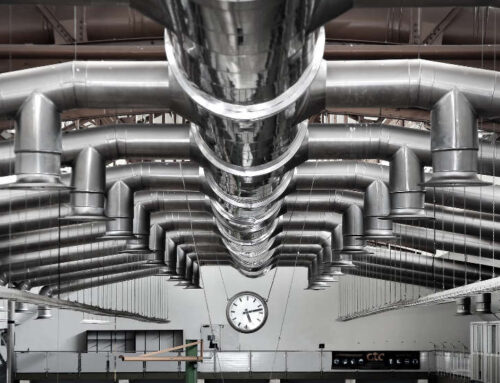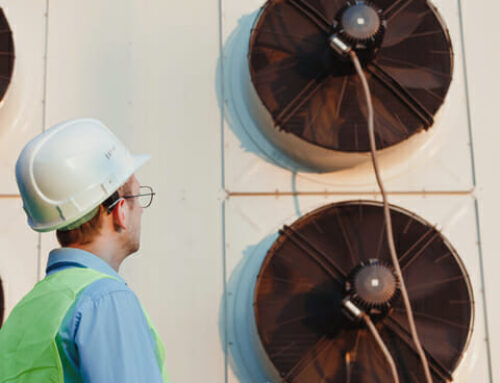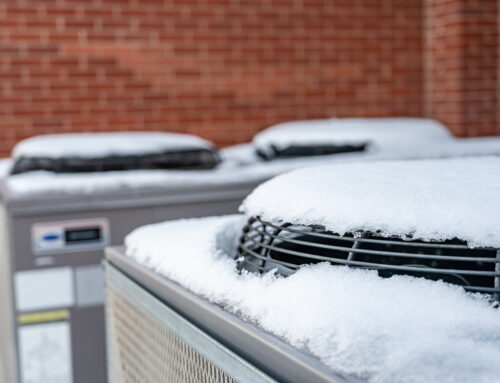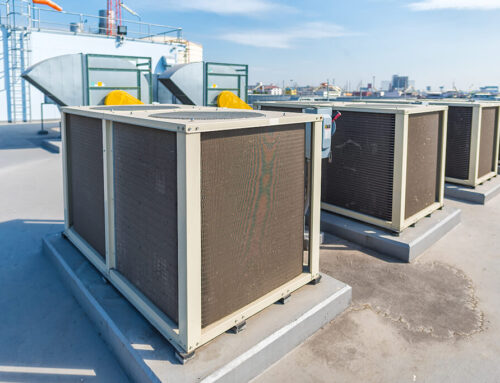Navigating the maze of commercial HVAC upkeep, including routine maintenance and necessary repairs for your heat pump, can hit your wallet unpredictably and affect energy bills. Yet, grasping the average maintenance cost, including necessary repairs and energy bills, clears up the financial fog of pricing, ensuring no nasty surprises in prices leap out from your balance sheets. In a world where cutting corners leads to costly breakdowns, investing wisely in regular preventive, routine, and proactive maintenance services keeps those dollar signs in check.
Overview of Average Maintenance Expenses for Commercial HVAC
Cost Factors
Understanding the cost factors such as heat pump efficiency, cleaning procedures, and energy consumption that impact commercial HVAC maintenance is crucial for facility managers. The size of your system plays a significant role. Larger systems require more time and resources to maintain.
The type of business also affects costs. A data center, needing precise HVAC services for climate control, may have higher expenses than a retail store in a commercial building. Location matters; businesses in regions with extreme weather might spend more on upkeep due to harsher conditions affecting their HVAC services, and facility managers may invest in predictive maintenance to mitigate these effects.
-
Size and complexity of the HVAC system.
-
Type and frequency of maintenance required.
-
Geographic location and local climate.
Regular Services
Regular services, including predictive maintenance and cleaning, are essential for keeping costs down over time for facility managers with an HVAC maintenance agreement. This includes HVAC maintenance tasks like changing filters, cleaning coils, checking refrigerant levels, inspecting belts, and predictive maintenance for facility managers.
Facility managers implementing a preventative maintenance plan, including HVAC system cleaning, can reduce emergency repairs which often cost significantly more than scheduled service visits. Investing in regular HVAC maintenance check-ups can extend the life of your home or facility equipment too.
-
Replace or clean air filters.
-
Inspect ducts and piping for leaks or damage.
-
Calibrate thermostats and controls for optimal performance.
Unexpected Repairs
Even with diligent HVAC maintenance, unexpected repairs can arise at a facility—often at inconvenient times—and they can be expensive depending on what’s needed.
For instance, replacing a compressor in HVAC maintenance is far costlier than fixing a thermostat issue. It’s wise to set aside a budget for HVAC maintenance and these types of emergencies so they don’t disrupt business operations or finances too heavily when they occur.
Key Factors Influencing HVAC Maintenance Pricing
System Size
The size of a commercial HVAC system plays a crucial role in maintenance costs. Larger HVAC systems require more time and resources for maintenance, leading to higher expenses.
A small office’s HVAC might cost less to service than one from a sprawling mall. This is because the mall’s HVAC maintenance system has more components and covers more area.
Unit Age
Older units often need more attention during maintenance visits. They may have outdated HVAC parts that are harder or costlier to find for maintenance.
An HVAC unit that’s been running for 10 years will likely incur higher maintenance fees compared to one that’s only two years old. Wear and tear lead to frequent repairs.
Service Frequency
Regular HVAC maintenance can keep costs manageable by preventing major breakdowns. However, the frequency of these HVAC maintenance services also impacts the overall expense.
Bi-annual HVAC check-ups are common for commercial spaces, but opting for quarterly services could increase annual spending on maintenance.
Contract Terms
HVAC maintenance contracts vary widely, affecting how much you pay over time. Some offer comprehensive HVAC maintenance coverage while others charge extra for certain tasks or parts replacement.
Choosing an HVAC contract with inclusive services might seem expensive upfront but can save money if it prevents costly repairs later on.
The Role of Preventative Maintenance in Cost Management
Regular Inspections
Regular inspections are crucial for keeping HVAC systems running smoothly. By scheduling these HVAC check-ups, you can spot issues early on. This prevents minor problems from becoming major expenses.
Technicians look for signs of wear and tear in HVAC systems during an inspection. They might find an HVAC belt that needs replacing or a filter that’s due for a change. Addressing these small HVAC issues promptly means your system runs more efficiently and avoids larger repair bills later.
Timely Repairs
When HVAC repairs are made timely, they often cost less than if delayed. Quick action can prevent damage from spreading to other parts of the HVAC system.
Imagine noticing strange noises coming from your HVAC unit. If you call for HVAC service right away, the problem could be something simple like loose components. But if you wait, those loose HVAC parts could cause further harm leading to more extensive repairs.
Cost Savings
Preventive maintenance leads to direct cost savings over time. Here’s how:
-
Reduced energy bills: A well-maintained HVAC system uses less power.
-
Longer lifespan: Regular HVAC care extends the life of your equipment.
-
Fewer emergency HVAC repairs: With ongoing maintenance, sudden breakdowns are rare.
Businesses can budget better with predictable HVAC maintenance costs rather than unexpected repair fees. Plus, efficient systems contribute to lower operational costs overall.
Deciphering Commercial HVAC Maintenance Contracts
Contract Essentials
Commercial HVAC maintenance contracts can be complex. They outline service details and costs. Understanding these is key to managing expenses.
A standard HVAC contract should list services provided and frequency of maintenance. It often includes inspections, cleaning, and part replacements. Some contracts offer priority service for emergencies.
Cost Factors
The cost of commercial HVAC maintenance varies based on several factors:
-
System size: Larger systems may require more frequent attention.
-
System complexity: Advanced HVAC systems with more components could increase costs.
-
Service frequency: More visits mean higher overall prices.
These elements directly influence the average commercial hvac maintenance cost.
Calculating Costs
Business owners should calculate expected costs from their contract terms. This helps budget for yearly expenses correctly.
Start by reviewing the services listed in your contract. Check how often technicians will visit your facility. Then, consider HVAC system size and complexity mentioned earlier to estimate the price range.
Remember that a well-maintained HVAC system can prevent costly repairs down the line.
Components and Frequency of HVAC Servicing
Regular Inspections
Regular inspections are crucial. They keep systems running smoothly. Experts suggest at least bi-annual check-ups. This helps prevent costly repairs down the line.
During inspections, technicians look for wear and tear. They also clean components like coils and filters. This maintains efficiency and air quality.
Filter Changes
Filters trap dirt, dust, and other particles. Over time, they get clogged. Dirty filters strain the system more than necessary.
Most experts recommend changing filters every three months. But in high-use settings or dusty areas, monthly HVAC filter changes might be needed.
System Calibration
Proper calibration ensures systems run as intended. Technicians calibrate thermostats to ensure accurate temperature control. This can save on energy costs by avoiding unnecessary heating or cooling with an efficient HVAC system.
Calibration should happen during regular servicing visits. It’s a simple step in HVAC maintenance that can make a big difference in system performance.
Calculating Your HVAC Maintenance Budget
Cost Factors
Knowing the components and frequency of servicing is crucial. But, how much should you set aside for maintenance? Various factors determine your expenses.
Firstly, consider the size of your system. Larger HVAC systems often mean higher costs due to more extensive components. Secondly, the age of your HVAC equipment plays a role; older units may require more frequent repairs. The type of business you run also impacts cost; a restaurant’s HVAC might need more attention than an office space.
-
Size and complexity of HVAC system
-
Age and condition
-
Business type and usage intensity
Annual Estimates
To budget effectively, look at annual estimates for commercial HVAC maintenance. On average, businesses spend between $500 to $2,000 annually on preventative maintenance for HVAC systems alone.
For exact figures on HVAC systems, it’s best to get quotes from local service providers who will assess your specific needs. Remember that investing in regular HVAC upkeep can save money long-term by preventing costly breakdowns.
Two essential tips:
-
Get multiple quotes for comparison.
-
Factor in potential savings from efficiency improvements post-maintenance.
Benefits and Savings from Regular HVAC Upkeep
Lower Energy Bills
Regular maintenance of your commercial HVAC system can lead to significant savings. A well-maintained HVAC unit operates more efficiently, using less energy. This efficiency translates directly into lower utility bills.
For example, simply replacing or cleaning HVAC air filters can improve efficiency by up to 15%. Imagine the impact on a large scale for businesses with extensive systems.
Fewer Repairs
Regular HVAC maintenance helps catch small issues before they turn into big problems. Regular HVAC check-ups often reveal worn parts and potential breakdowns early on. Addressing these minor HVAC issues promptly means avoiding costly repairs later.
Consider this: a frayed hvac belt discovered during routine maintenance is much cheaper to replace than dealing with a snapped belt that causes the entire hvac system to fail.
Extended Lifespan
HVAC units are expensive investments for any business. Through regular upkeep, you ensure that your equipment lasts as long as possible. Neglect can shorten an HVAC system’s lifespan significantly, forcing earlier replacements.
A well-cared-for unit could last several years longer than one without proper care, maximizing the return on your investment.
Healthier Air Quality
Good indoor air quality is essential for employee health and customer comfort. Maintenance includes checking ventilation and cleaning components that affect air quality directly.
Clean coils and filters mean cleaner air circulating through your building, reducing allergens and irritants in the process.
Selecting Qualified Professionals for HVAC Services
Credentials Check
When choosing a professional for HVAC maintenance, credentials are vital. Look for technicians with certification from recognized institutions. These include the North American Technician Excellence (NATE) or HVAC Excellence certifications.
Certified professionals are more likely to understand the latest HVAC technologies and standards. They can often spot issues before they become serious, saving you money in the long run.
Experience Matters
Another key factor is experience. A seasoned technician will have dealt with various HVAC systems and problems. This breadth of knowledge means they can quickly identify and fix issues efficiently.
Ask about their years in business and types of systems they’ve worked on. More experience often translates to quicker diagnosis and repairs, which saves time and potentially reduces costs.
Cost Considerations
Talking about average commercial HVAC maintenance cost, it’s important not to choose based solely on price. Extremely low quotes may indicate subpar service or hidden fees later on.
A trustworthy professional should provide a clear breakdown of costs upfront. This includes labor, parts, and any potential additional charges that could arise during maintenance work.
Remember, regular upkeep by qualified professionals helps avoid costly breakdowns mentioned in previous sections about “Benefits and Savings from Regular HVAC Upkeep”.
Final Remarks
Navigating the maze of commercial HVAC maintenance costs doesn’t have to feel like a wild goose chase. You’ve got the lowdown on everything from average expenses and crucial cost factors to the nitty-gritty of service contracts. Regular maintenance is your golden ticket to keeping those bills in check and ensuring your system runs like a dream. Think of it as your HVAC’s personal fitness plan—it stays in top shape, and you dodge those budget-busting breakdowns.
Now it’s time to put that knowledge into action. Crunch the numbers for your maintenance budget, cherry-pick top-notch pros, and relish the peace of mind and savings that follow. Ready to take the plunge? Give your HVAC the TLC it deserves and watch your investment pay off. Let’s get that system humming and your wallet happy!






